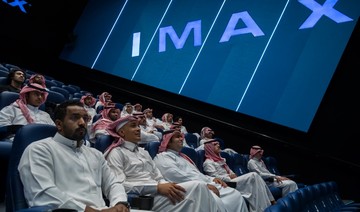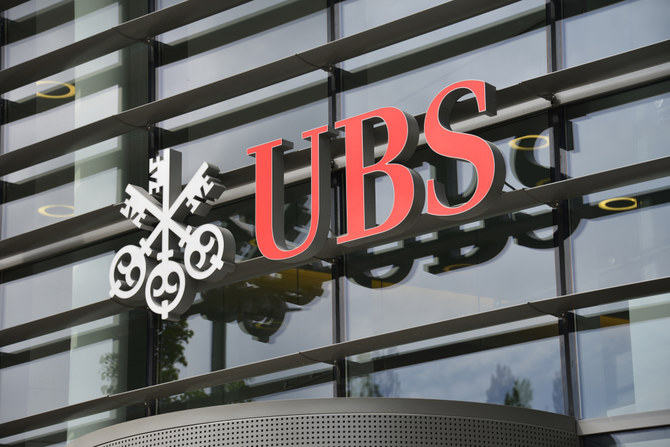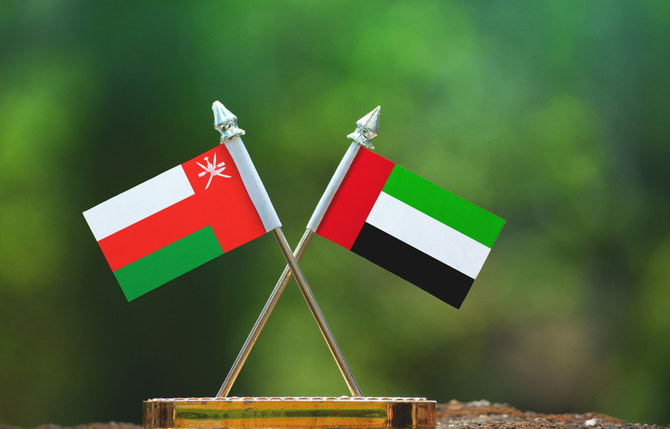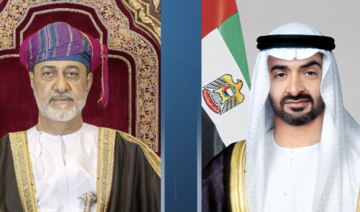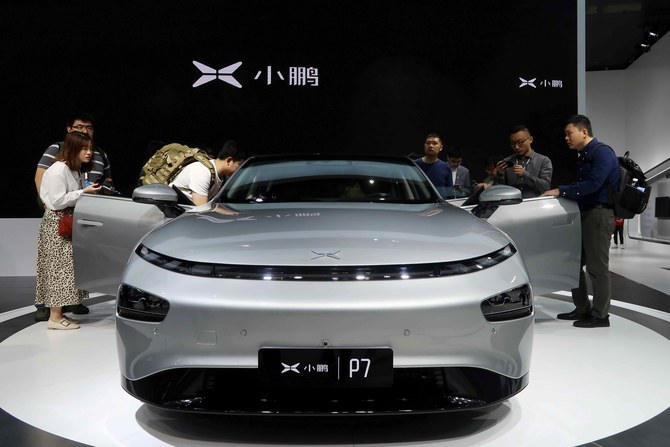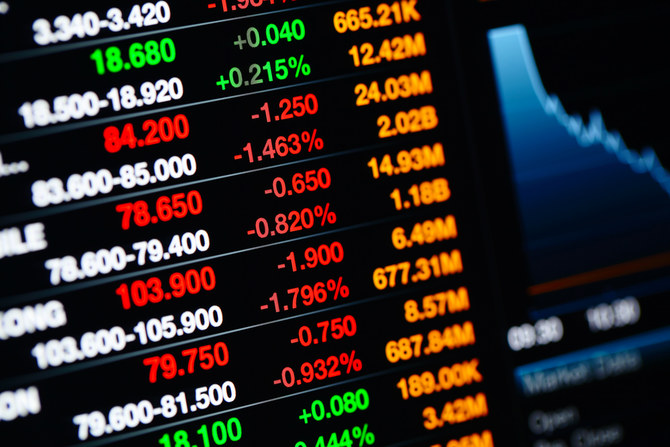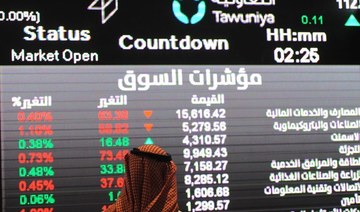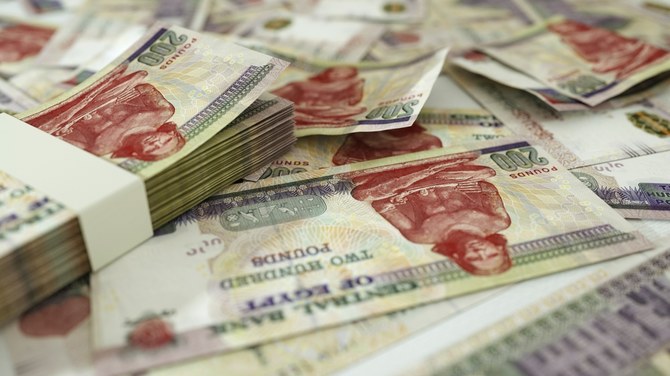DUBAI: It is not every day you get to meet an Oscar winner.
Last week, the genial and straight-talking Michael Garin, CEO of Abu Dhabi film production company Image Nation, assumed that title. One of his projects, “Free Solo,” about the rock climber Alex Honnold’s epic ascent of Yosemite’s El Capitan wall in the US, won the award for Best Documentary at the gala Hollywood event.
Rami Malek’s award for Best Actor in a Leading Role drew plaudits across the Middle East, but “Free Solo” — having also won a British Academy of Film and Television Arts award — is a testament to the Gulf’s burgeoning film industry. Garin has played a big part in that.
So, who would he like to thank? “Well, my mother, my father…” he joked, before naming Evan Hayes, who developed and produced the film, and Ben Ross, his chief content officer in Abu Dhabi.
He also paid tribute to the UAE itself, which launched Image Nation 12 years ago, and Saudi Arabia, where the company is increasingly focusing.
The traditional nature of society in the Gulf had provided stability, he said, allowing a younger generation to “let go” and the industry to expand.
“At the end of the day this is a tribal society with a lot of traditions that are not going to change as rapidly as technology and economics change. There’s a unity and a solidarity,” the native New Yorker said. “People in the rest of the world don’t understand, but democracy gave us Donald Trump.”
After a successful career in US media Garin transferred to the UAE in 2007, and became Image Nation’s CEO six years later. With the CV of a media mogul, he was well positioned to recognize the challenges.
“Failure was punished, culturally. The first thing we had to do was make Image Nation a place where it was safe to fail. You can’t create excellence without people taking creative risks, and most creative risks don’t succeed. If you try and fail, you have to be protected,” he added.
Another issue was that there were few Emiratis with expertise in film. “We were able to convince the leadership that, because this was an industry that did not exist before, you could not populate the upper levels of the organization with local staff. We had to bring expats in who would provide the guidance and training to create a professional industry.”
Now most of Image Nation’s 73 permanent employees are Emirati, many of them in senior positions. “I can honestly say we do not have a single Emirati working here just because they are Emirati. They’re very talented.”
Some have talked about a “motivational deficit and skills gap” in the ongoing policy of “localization” in the UAE and Saudi Arabia, but Garin dismisses it. “There’s a skills gap in an industry that wasn’t there before. There’s a difference between talent and skill. What they don’t lack is desire and ambition,”
he said.

Illustration by Luis Grañena
Image Nation was set up to cultivate a creative film industry in the region, but was not expected to be a source of financial profit. It lives off state funding.
“What I’m very grateful for is that the money comes with no strings. I’ve never had a complaint about the content, never been told what to create,” Garin said. “In the beginning, they were talking like audiences, not producers. We did what they wanted, but not necessarily in the way they wanted it to be done.”
He also explained how the “leadership was lamenting potentially raising a generation of spoiled children,” which led to the twin criteria for films encouraging social development as well as entertainment.
He highlighted a series on the Philippines, designed to show pampered Emirati youth the realities of life beyond their privileged horizons, and a short movie, “Leap of Faith,” to accompany the $4.5 billion campaign by the UAE, in partnership with US philanthropist Bill Gates, to eradicate polio in Pakistan.
But his proudest achievement to date — at least before the Oscar — was the series “Justice,” which follows the lives of a family of Emirati lawyers and their clients, starring local actors and filmed on location in the UAE. “‘LA Law’ meets ‘Dallas’ in Abu Dhabi,” Garin described the show, which was translated into 27 languages on Netflix.
“This is one of the secrets of our success. Everything we do is culturally authentic. I think Saudi Arabia is following suit, combining international expertise with local talent, knowledge and resources. I really admire the way Saudi Arabia has gone about the development of their entertainment sector. There are certain things in our industry that can be purchased.
You can build get AMC and VOX to build theaters. You can get Paramount, Disney, or Universal to book their movies in those theaters. You can hire Six Flags to build a theme park.
“The Kingdom accomplished two things very quickly: It convinced the world it was serious about opening up society and loosening control, and more importantly, it convinced the local population they were serious.”
Garin had a warning for Saudi policymakers, however. “The only thing that money does not buy in our industry, and I don’t think they understand this yet, is the creation of local content capability. That’s a decades-long efforts of training and development and getting people to learn the craft.”
Throwing money at the problem was the biggest mistake the UAE made in the early days of Image Nation, he believes. “Giving money to aspiring filmmakers without oversight and controls is the quickest way to kill the industry. Even Steven Spielberg works for a studio,” he said.
A note of frustration creeps in when he mentions bureaucracy. “We’ve had great meetings, but it’s all ‘inshallah’ at this stage.” He is equally perplexed at the low financial esteem in which screenwriters are held, which he calls “the single greatest weakness in the whole region.”
He also wants Saudi Arabia to follow the example set by Image Nation’s Arab Film Studios, which teaches young filmmakers in the region about the industry. “But we don’t want them to pay. We’ll give them all our programs and their curriculum and when they are ready to manage it themselves then we can walk away.”
Despite the Oscars euphoria, Garin thinks the Arab world must set realistic expectations for its films. “There is the Best Foreign Film category, which one day we will win, but we’re never going to win Best Picture because of the budgets for those movies. They are made for a global audience. And who votes for them? Americans. It’s a very parochial industry.”




